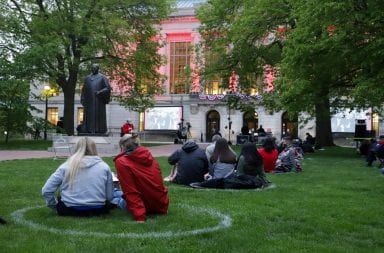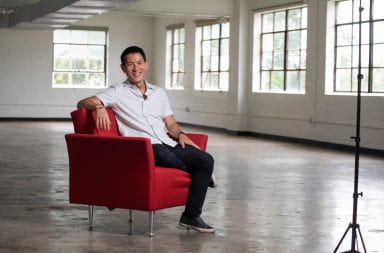China’s most prestigious academic institution, Peking University, announced plans in a press release late last month for a new program to screen students on 10 fronts. Some of these included signs of “psychological fragility”, “eccentricity”, “poverty”, poor academic performance, and “radical thoughts.”
In each of these cases the university would provide consultations to the troubled students. The most contested among these supposed student problems is the screening of “radical thoughts.”
Zhang Qianfan, a professor of law at Peking University, disagrees with the new policy, calling it “a mistake.” He further elaborates, “once the university decides to stifle its traditional atmosphere of openness, the victim who will suffer the most will be the university itself.”
Zha Jing, the deputy director of the Office of Student Affairs, defended the program, saying its intention is to “extend a helping hand” to students. He said he believed too much attention was given to the word “radical.”
However, Peking students and professors take issue with “radical thought.” Peking University, the Harvard of China, has a long history with unorthodox thought. Students’ radical thought in the 1910s spurred the New Culture Movement when scholars and students rose against traditional Confucian teachings. Radical thought amongst the youth fueled the Cultural Revolution in the late 1960s. Most recently, students’ radical thought, their desire for democratic reform, instigated the protests that culminated in the Tiananmen Square massacre. It is no wonder that Time Magazine dubbed Peking University as “the cradle of political agitation in China.”
In response to the Tiananmen protests, the Communist Party initiated the Student Informant System (SIS) at major universities, employing students to dutifully spy on professors and peer students who have “politically subversive or unconventional views,” according to a CIA document 6. Despite the fact that student spying can be extremely subjective, if an informant catches even a telling facial expression of another student, the student culprit can be faced with serious academic consequences. In recent years, the SIS has been implemented in smaller universities, technical schools and high schools.
Although Peking University’s consultation service for radical thought is relatively trivial, its implications are far more serious. Radical thought can be politically motivated, and in an attempt to stymie all of these thoughts, progressive and reformist thought can be swept into the university’s same censoring dustpan. This past week Chinese authorities detained Ai Weiwei, an internationally recognized artist and known government detractor. He represents the Chinese crackdown on dissidents and rights activists of recent weeks. Noticing the pro-democracy protests that took hold in the Middle East, Chinese authorities have an escalating fear of government criticism. In essence, Tiananmen Square can be viewed as the two-decade-old precursor to the Middle East protests of today — the youth protested for democratic reform and their efforts were thwarted, violently. In the context of the current global climate, this blight on student freedom is indicative of the same governmental fear.
Yet, even in the face of this crackdown, it is important not to look at China through a myopic lens. China has been on an upward trajectory for the past 10 years; the standard of living is improving and the education system perhaps exceeds our own. My concern is that political freedom is not guaranteed with economic satisfaction. Stamping out radical thought eerily reminds me of thoughtcrime — the Orwellian notion of punishment for unorthodox thought. As a university student of another world, I believe dissenting thought is the glory of college classrooms. The unconventional thinker solitarily braves the tide of concurring class convictions. If nothing more than a devil’s advocate, the classroom radical goads students to think more deeply and eventually, more progressively. This is the kind of thought to be encouraged not repressed.


